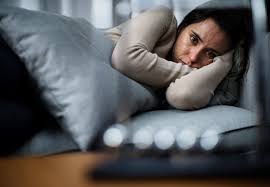Depressive disorders come on numerous levels. Some conditions are linked with substance abuse while others can be classified from mild to severe depression. This is the reason why treating it requires an individualized process. It is personal and definitely not a one size fits all solution.
You should discuss with your physician the next steps to take as soon as you are diagnosed with a depressive disorder. There are multiple treatment providers available that can help you arrange a treatment plan that fits your needs and resources. You just have to keep in mind that flexibility is a must in the process. It may take time to find the best care for you.
Depression Treatment Options
 Depression, the most common mental health illness experienced by over 15 million people in the United States, is a serious condition that has no cure but can be treated to become more manageable. The longer a person endures the symptoms of depression, the more it becomes life-threatening.
Depression, the most common mental health illness experienced by over 15 million people in the United States, is a serious condition that has no cure but can be treated to become more manageable. The longer a person endures the symptoms of depression, the more it becomes life-threatening.
Although experts fail to exactly pinpoint the cause of depression, studies have found that the brain structure of people diagnosed with a depressive disorder is different from those who have no depression at all. Some scientists claim that depression runs in the blood, however; several individuals suffer depression in the family first hand.
As difficult as diagnosing someone with depression, treatment can also be a long process to venture into before experiencing its effectiveness. It could take an average of three months before a person can tell that the treatment plan is working and that one’s mental health condition is improving. The key to development is to stay open to different treatment options.
In a study conducted among several people diagnosed with depression, there is no significant difference found in the effectiveness between inpatient and outpatient treatment. However, mental health professionals highly recommend inpatient treatment for severe depression especially when one comes with other disorders such as substance abuse.
Inpatient Treatment
 The severe depressive disorder prevents a person from functioning properly in day to day life activities due to persistent feelings of despair. While some patients experience other illnesses that co-occur with their depression, other individuals seek comfort from substance abuse which only worsens their condition.
The severe depressive disorder prevents a person from functioning properly in day to day life activities due to persistent feelings of despair. While some patients experience other illnesses that co-occur with their depression, other individuals seek comfort from substance abuse which only worsens their condition.
For these instances, inpatient treatment is a great option because the patients are closely supervised by their physicians. With medication usually as the first line of treatment, it is necessary to monitor the accurate intake of dosage and control the severity of other underlying illnesses such as stroke, heart disease, diabetes, as well as addiction.
Apart from this, an inpatient treatment separates individuals from their daily stressors and allows them to focus on identifying their mental triggers and strengthening their combat. They also enjoy the support from a conducive environment where routines are constantly guided and therapies are uniquely designed to respond to their needs.
However, some people are not enticed by the benefits of inpatient treatment because it could be expensive, especially for those who do not have insurance. The cost could be a very good excuse however, it is still best to discuss the conditions with your mental healthcare provider to avoid further risks.
Outpatient Treatment
Outpatient treatment perfectly suits individuals who prefer not to let go of their usual responsibilities either at school, at work, or home while on treatment. These can be individuals diagnosed with mild depression, a condition that is difficult to diagnose because the symptoms could be easily misinterpreted. The treatment can be classified into two:
Partial hospitalization care
This is a type of treatment program where the patient engages in a series of therapy for a couple of hours in a psychiatric hospital three to five times a week. The program aims to help the person reach a level of care that allows them more independence. The program may run for weeks or months depending on the progress the person shows.
A person can be qualified in this treatment if they are capable of working on tasks when given the right kind of support at home, they do not possess any co-occurring illnesses with depression, and they do not pose any harm to themselves or others. Oftentimes, families are engaged in the program because a strong support system is valued in the treatment.
Intensive outpatient care
 This type of care can run for about three hours a day five times a week. The length of the program also depends on the progress projected by the patient. The objective of the treatment is to train the person to adapt coping skills as well as self-awareness so that they will learn to manage their condition independently.
This type of care can run for about three hours a day five times a week. The length of the program also depends on the progress projected by the patient. The objective of the treatment is to train the person to adapt coping skills as well as self-awareness so that they will learn to manage their condition independently.
It is important to note that this type of care is not for all patients. If a person has difficulty facing their triggers in real life, this is not suitable for them. The distinct quality of outpatient care is the training to cope with the stressors in the real world by allowing the person to face them. This also does not demand so much time which makes patients enjoy a normal life.
Other Medication Procedures
If you or your loved one is suffering from mild depression, you can go for alternative treatment such as acupuncture, complementary therapy, hypnosis, and biofeedback. Overall, these can be grouped and called complementary therapy, and they aim at helping you or the patient recover from a mild depressive disorder.
Brain Stimulation Therapy
If you or the patient have depression and psychosis, then the best treatment is brain stimulation. For this method, there are three types: vagus nerve stimulation (VNS), electroconvulsive therapy (ECT), and transcranial magnetic stimulation (TMS).
When Is Hospitalization Necessary
It is important to understand that the level of treatment a person is required is not always a matter of preference. When a person becomes harmful to oneself and others, treatment to the hospital would be the best option. Even without the consent of the patient, the treatment, in this case, can proceed with approval from the higher court.
There is also a specific technology used for depression treatment such as electroconvulsive therapy (ECT) that can only be administered inside the hospital. This procedure allows electric current to enter the brain to reverse the symptoms of depression. The effect must constantly be supervised by physicians through hospital care.
If you have been diagnosed with a depressive disorder, seek treatment and talk to a professional help now!
